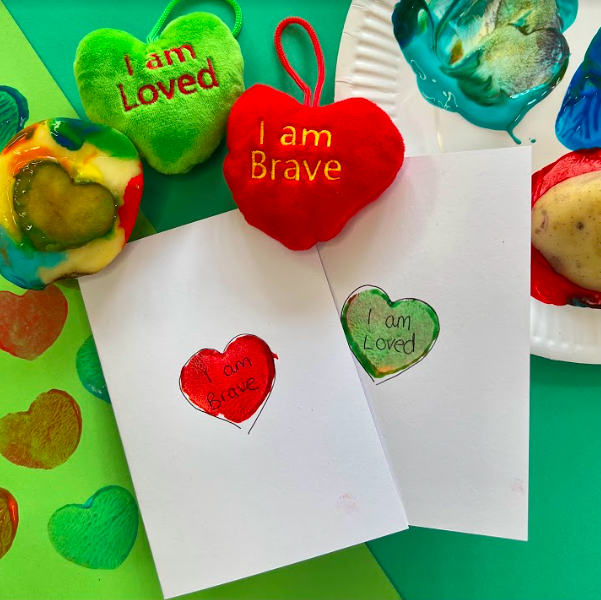Self-awareness means
- Equipped to deal with emotions
- Good communication skills
- Knowing own strengths and limits
- Listening and seeing other perspectives
- Positive demeanor
Tips for building self-awareness
- Move out of your comfort zone and try different things.
- When you are out walking, notice what is going on around you.
- Reflect on your thoughts and how feelings feel in your body.
- Journal your beliefs and values.
- Be a detective: question your thoughts.
- Share conversations with friends about how you see each other and your differences.
- Remain open, receptive, calm, and open to others (sometimes people get defensive and feel you are saying they are wrong because of differing views). It is okay to think differently. It is what makes us unique and the world go around.
- When you become aware of your emotions and any changes, reflect on why they have changed. What is going on, and what triggered them to change. Reflect on your entire process.
- Get to know yourself inside and out, the ‘good’ and the ‘bad’, your strengths and weaknesses. If you do not like something you can change it. Also, remember that the way we see things is only our perspective, it may not be true.
- Let go of any fears of seeing yourself as human and with all that it brings.
Social awareness skills
- Empathetic, caring, and the ability to try and understand the emotions of others
- Ability to reflect on our own thoughts, feelings, and behaviors
- Trustworthy
- Remaining curious to understand
- Able to connect and relate in relationships
Building social awareness and skills
- If you find a social situation difficult, ask open-ended questions to get things going.
- Listen to others and their perspectives.
- Give your full attention and stop what you are doing.
- Express your concerns for the feelings of others.
- Acknowledge the strengths and efforts of others.
- Show gratitude.
- Body language is a large part of our social interactions, so stay friendly and approachable with good eye contact.
- Practice.
Self-regulation
- Ability to manage and understand your behavior and reactions
- Keeping thoughts, emotions, and behaviors in check
- Remaining aware that your thoughts can start a process that may not help you
- Managing reactions
- Understanding and sensing emotions and what affects them to gain control
- Tolerating uncomfortable feelings and working through them
- Ability to calm yourself down after experiencing strong emotions
- Taking care of yourself.
Supporting self-regulation
- Being self-aware will help you recognise your patterns quickly when something happens and help you to challenge your thoughts before they escalate.
- Breathe and step back before you react, giving you time to respond appropriately.
- Use positive self-talk. You talked yourself into something, and now you can talk yourself out of it.
- Be mindful that what you think is happening is not always the way it is. Each of us have triggers and perspectives.
- Remain curious, gather information, and be open to other perspectives before making up your mind about a situation. Do not run away with your assumptions.
- Use your inner voice for support, not as a critic. Stop negative thoughts in their tracks and turn them around.
Building Relationships
- Self-awareness with the ability to control your emotions
- Able to recognize your emotions
- Seeking to understand emotions in others
- Talking and communicating well
- Empathising with others
- Creating trust with others
- Respect each other
- Connecting in meaningful ways
- Wanting the best for each other
- Remaining open to compromise and negotiating
- Being mindful of expectations
- Not making others responsible for meeting your needs.
Building relationships
- Prioritize your relationships when things become difficult. Explain if you are too upset to talk, as you may say something you will regret. Come back to the conversation when you are ready.
- Accept differences.
- Use the “I” message rather than blame or accuse:
I feel……………when you shout at me.
- Do not justify inappropriate behavior. Maturity, accountability, and responsibility is key.
- Do not take things personally. We all have different opinions and perspectives. Most arguments come from trying to convince, dismiss or change the views of others.
- When things are heated, the priority is to calm down first before any discussions. Keep yourself and each other safe.
- You are two different individuals coming from different backgrounds which is okay. Trying to work as a team and get on the same page with some areas, like parenting, is important.
You are UNIQUE!




